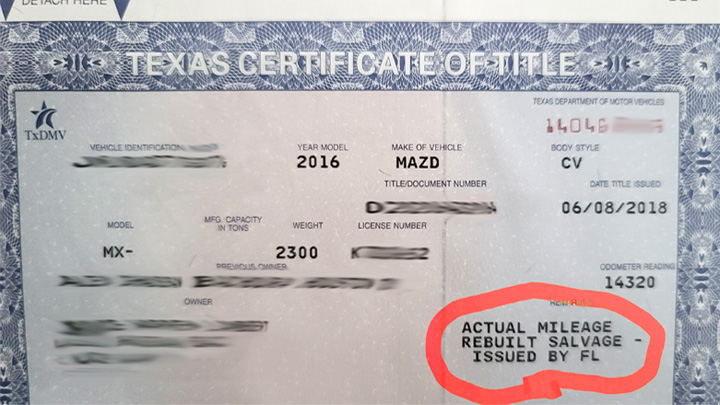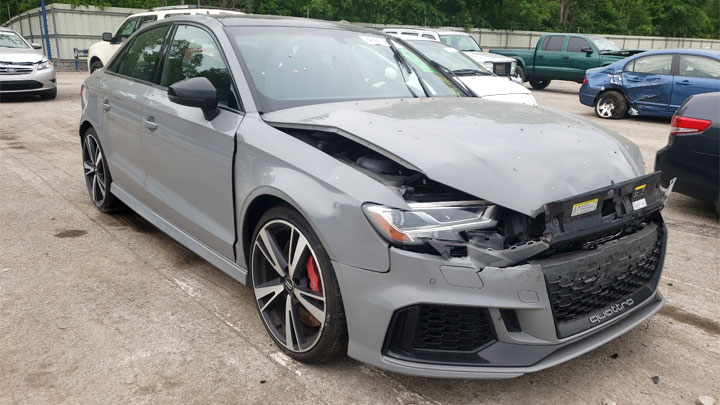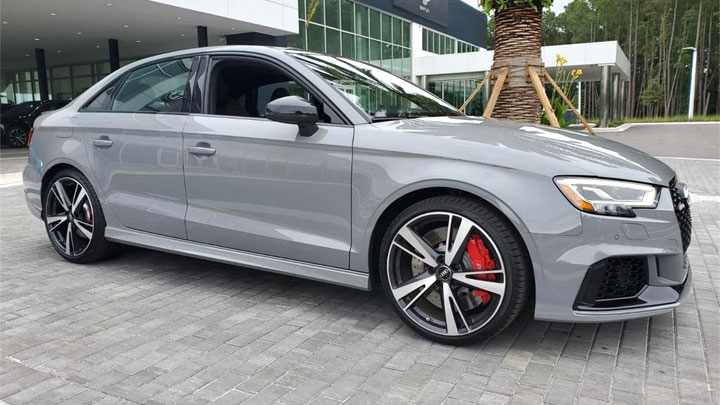Salvage Title vs Rebuilt Title (What’s the Difference?)
New, certified pre-owned, and most used vehicles come with clean titles, indicating no major accident, vandalism, or weather damage. This reassures buyers of a pristine history. But when issues arise, branded titles like “salvage” and “rebuilt” are issued instead.
Though some regional differences exist, these titles generally signify previous problems. Keep reading to learn the differences between a salvage and rebuilt title to better understand what types of risks you may encounter (if any).

Related: What is a Branded Title? (Comparing 6 Types)
What is a Salvage Title?
When your vehicle goes through a major accident, one of the first things the vehicle owner will do is contact their insurance company to file a claim.
If the repair costs are greater than a certain percentage (usually between 50% and 90%) of the vehicle’s value, the insurance company will likely pay the policyholder the fair market value of your vehicle and then taking possession of the vehicle. Structural or frame damage is a common reason why a car or truck would be deemed “salvaged”.

Since the repair costs are more than the vehicle is worth, it is cheaper for them to just pay you the market value and then sell off the vehicle for auction. Once that happens, the state’s Department of Motor Vehicles (DMV) will change the title status of the vehicle to “salvage.”
By law, any car with a salvage title cannot be driven. Insurance companies will usually sell them at public auctions where people purchase them for spare parts. If the buyer is a professional mechanic, they could potentially fix up the vehicle so that it is in operating condition again.
See Also: What is a Hydrolocked Engine?
What is a Rebuilt Title?
When a salvage titled vehicle has been rebuilt or repaired to be drivable again, the status of the title can change from salvage to “rebuilt.” The status of a salvage title can only be changed after a certified state auto inspector looks over the vehicle and deems it drivable for the road.

Some self-employed mechanics make a living from buying salvaged vehicles at auctions, repairing (rebuilding) them, and then reselling them for profit. It’s similar to flipping houses.
If you plan to do this, just be careful of the risk involved. When you purchase cars at an auction (you usually need to be licensed to do so), you often don’t really know how bad a shape they are in until you take possession of them.
- Replace the Engine or Replace the Car? (11 Factors to Consider) - Apr 11, 2024
- Plastic Piece Dragging Under Your Car? (What It Is and What To Do) - Mar 21, 2024
- Timing Belt vs Timing Chain (What’s the Difference?) - Feb 27, 2024
